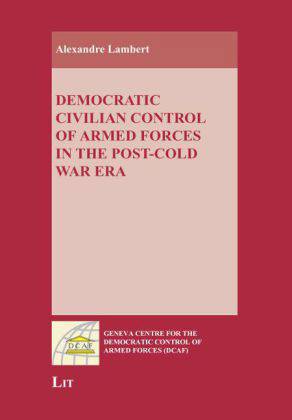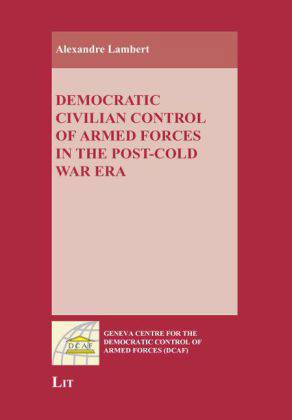
- Afhalen na 1 uur in een winkel met voorraad
- Gratis thuislevering in België vanaf € 30
- Ruim aanbod met 7 miljoen producten
- Afhalen na 1 uur in een winkel met voorraad
- Gratis thuislevering in België vanaf € 30
- Ruim aanbod met 7 miljoen producten
Zoeken
Democratic Civilian Control of Armed Forces in the Post-Cold War Era
Alexandre Lambert
€ 29,45
+ 58 punten
Omschrijving
At the beginning of the 21st century, reform and democratic control of the security sector have become key challenges as much for the Euro-Atlantic region as for the developing world. These challenges are increasingly recognised as a fundamental requirement for coping with the emerging new risks and challenges and for managing the dynamic political changes in the post-Cold War era. Therein, security sector reform and security sector governance have become pre-conditions of conflict prevention, human security, economic development and progress towards democracy, stability and peace. This volume systematically analyses both the framework and criteria of democratic civilian control of armed forces and security sector governance in their dynamic evolution in the post-Cold War era. Based on an inter-disciplinary and holistic analytical approach, it critically assesses the normative and functional value and importance of the principle of democratic civilian control within contemporary security architectures.
Specificaties
Betrokkenen
- Auteur(s):
- Uitgeverij:
Inhoud
- Aantal bladzijden:
- 440
- Taal:
- Engels
- Reeks:
Eigenschappen
- Productcode (EAN):
- 9783825811273
- Verschijningsdatum:
- 10/06/2009
- Uitvoering:
- Paperback
- Formaat:
- Trade paperback (VS)
- Afmetingen:
- 159 mm x 229 mm
- Gewicht:
- 762 g

Alleen bij Standaard Boekhandel
+ 58 punten op je klantenkaart van Standaard Boekhandel
Beoordelingen
We publiceren alleen reviews die voldoen aan de voorwaarden voor reviews. Bekijk onze voorwaarden voor reviews.











